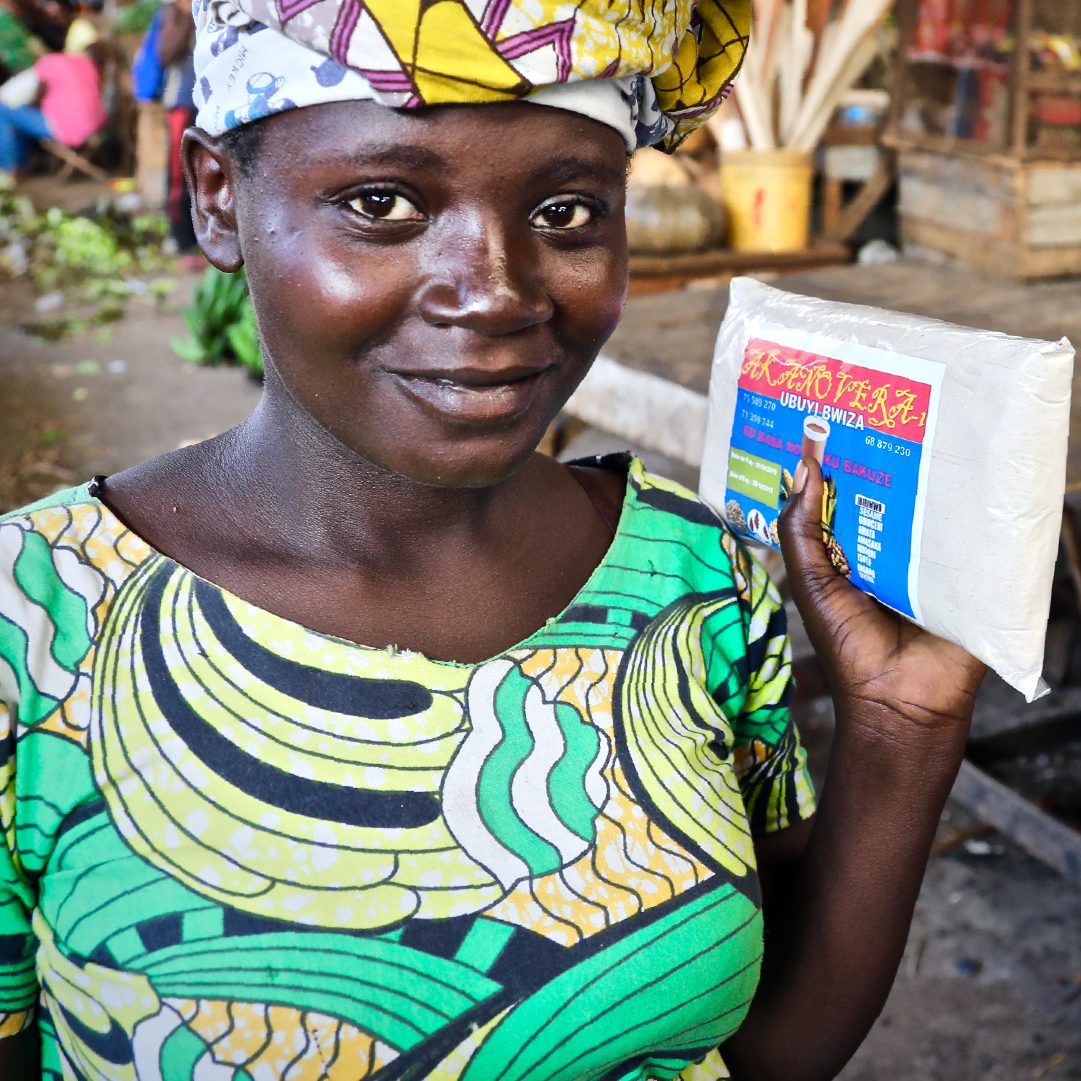Deborah Zagabe M'Simire, aged 42, is a refugee in Burundi from the Democratic Republic of Congo. She fled the DRC on foot in 2012 with 4 children due to the insecurity of her country. After arriving in Burundi, she found it hard to integrate and, above all, to get a job. The language barrier and discrimination against foreigners were the main causes. Her life began to change when she was targeted by AVSI as part of the project called “Protection, Health and Livelihood for Refugees in Burundi”-Trust Fund (november 2020 – december 2022) funded by the European Union. This project was implemented in partnership with UNHCR and International Rescue Committee, Gruppo di Volontariato Civile (GVC) and Jesuit Refugee Service (JRS).
Thanks to the project, based in Bujumbura, Zagabe learned hair braiding through a technical training course that lasted 4 months. Together with other 8 Congolese refugees she met during the project, they’ve been renting a space in the Jabe market in Bujumbura City where they have started their business activity. A braided wig is sold from 300,000 Burundian francs up to 500,000 (1 US dollar = 2900 Burundian francs). This coworking situation has been the opportunity for them to strength bonds and help and support each other. Working together has contributed to attract customers and to improve their income generating activity as their living conditions in their homes.
Step by step, the technical training received under AVSI's facilitation has given a job and became a source of income for the team.
The training not only gave me the possibility to learn a job that I like, but also helped me meet new friends that are now also my partners.
says Mrs Zagabe

About refugees in Burundi
Refugees from the Democratic Republic of the Congo were seeking asylum in Burundi in sequential waves due to the ongoing violence perpetrated by numerous armed groups, including widespread rape.
The most recent peak in new refugee arrivals occurred between July and October 2019, with an average of 1,200 new arrivals per month, compared with 500 previously.
It is with a view to ensuring that refugees benefit from a safe and protective environment that promotes their local inclusion, that the European Union funded "Protection, Health and Empowerment of Refugees in Burundi" project.
According to data from the Office of the United Nations High Commissioner for Refugees (UNHCR), there were around 259,700 refugees in Burundi on 31 May 2024. The vast majority come from the Democratic Republic of Congo.
The project at a glance
The project intervention in Burundi targeted refugees and the host the communities AVSI's interventions were focused on the Bujumbura City districts that have historically received refugees (Bwiza, Buyenzi, Buterere, Kamenge and Kinama) and refugee camps.
AVSI supervised a total of 1,290 beneficiaries and eighteen months after the end of the project, beneficiaries like Deborah Zagabe M'Simire are continuing to implement the lessons learned from the project.
Key activities
- Psychosocial support
- Temporary accommodation for gender based violence survivors
- Implementation of Engaging Men through Accountable Practices (EMAP) behavior change pathways
- Creation, training and mentoring of saving and credit groups.
- Recreational activities
- Training on employability skills of gender based violence survivors
- Learning facilitation and integration into employment
- Training in entrepreneurship and management of Icome Generating Activities for gender based violence survivors
- Creation of new Icome Generating Activities for gender based violence survivors
Some project results
- Psychosocial support to 827 people
- 5 savings and loan groups with 132 members have been set up.
- 75 female beneficiaries receive financial support for Icome Generating Activities.
- 470 survivors of gender based violence received a dignity kit consisting of loincloths, soaps, and sanitary napkins.
- 11 people (children, mothers and survivors of Gender Based Violence) in need accommodated with the support of the project.
- 332 beneficiaries (62 women and 270 men) were sensitized on the rights of women and girls and on positive masculinity (for men) via the Engaging Men through Accountable Practices (EMAP) approach
- Recreational activities wereappreciated by the beneficiaries because it created a framework for meeting, dialogue and getting to know each other.
Keep you updated

Subscribe to AVSI newsletter
Sign up to receive news and information on our work in the world.
